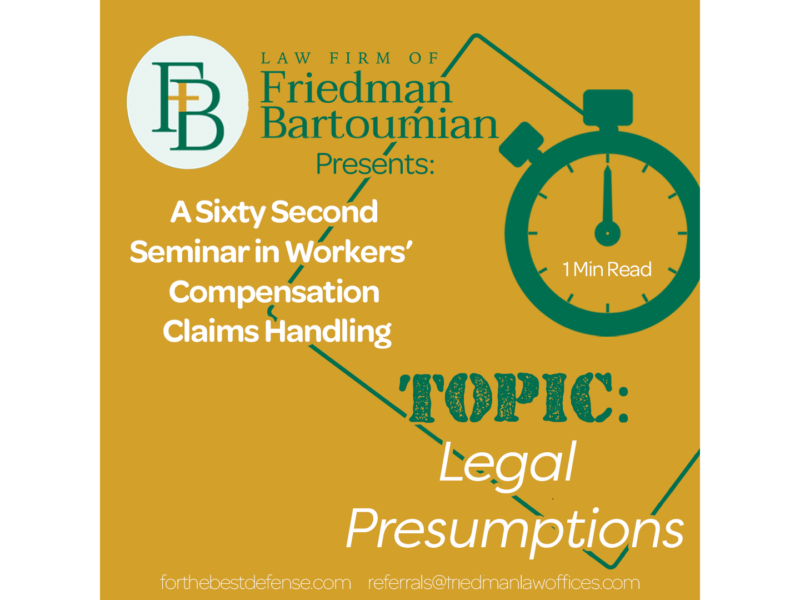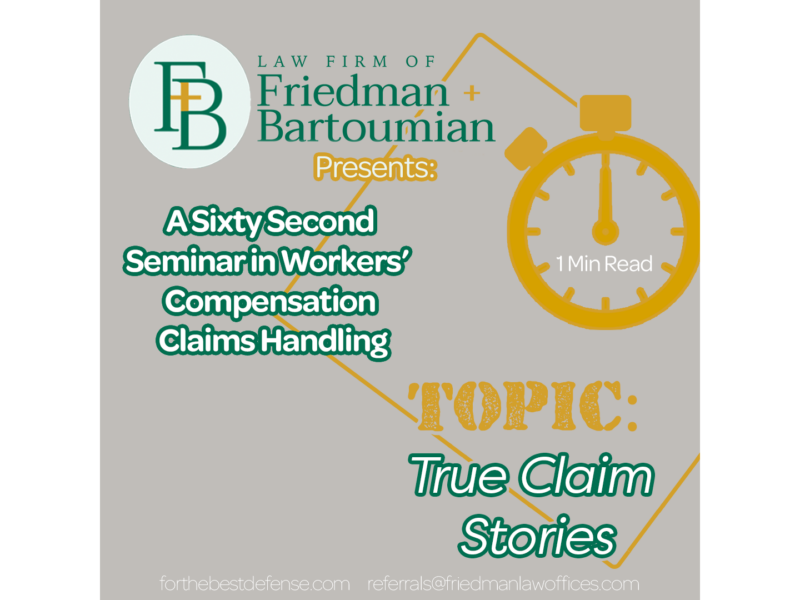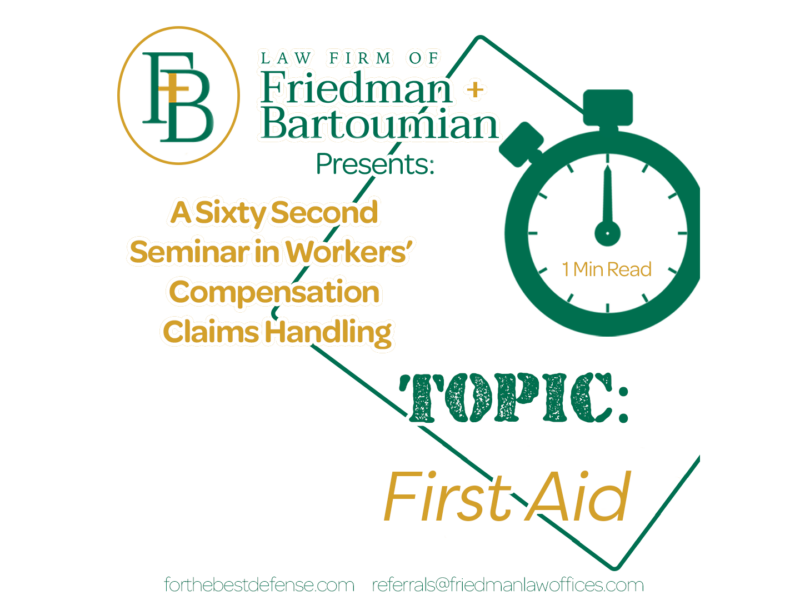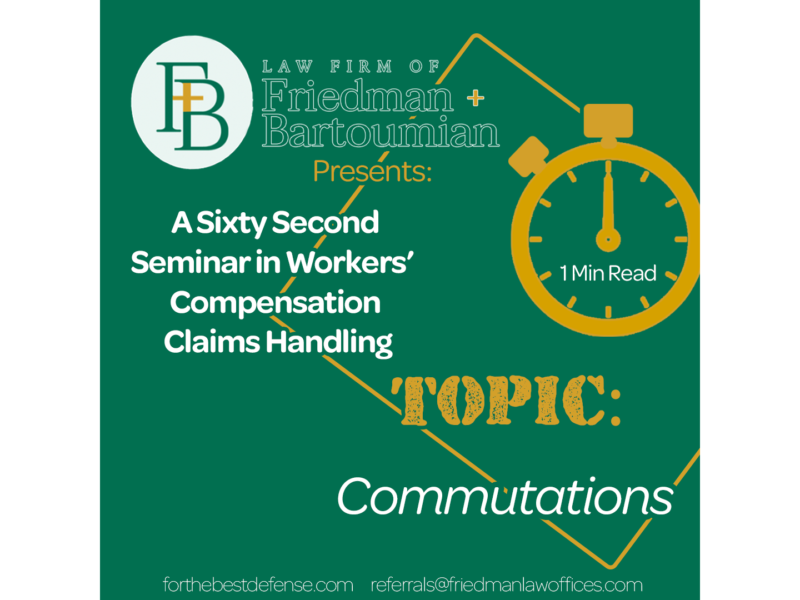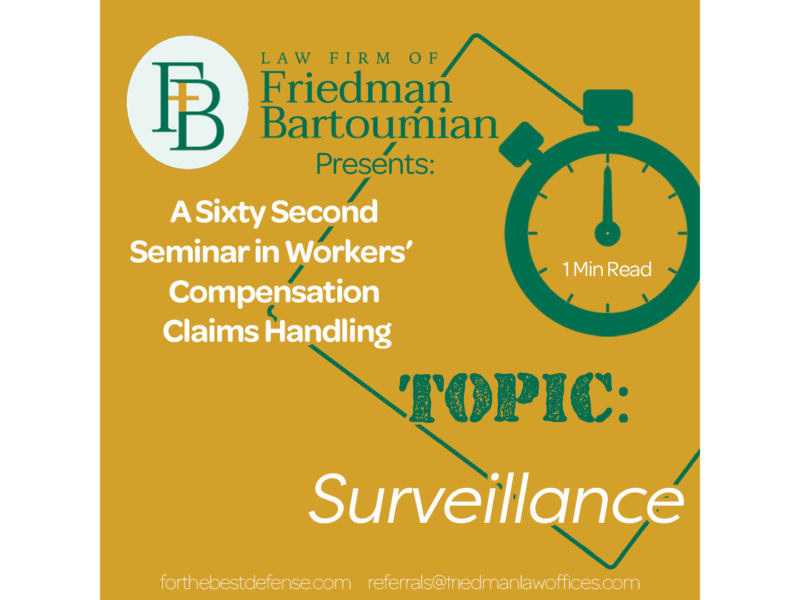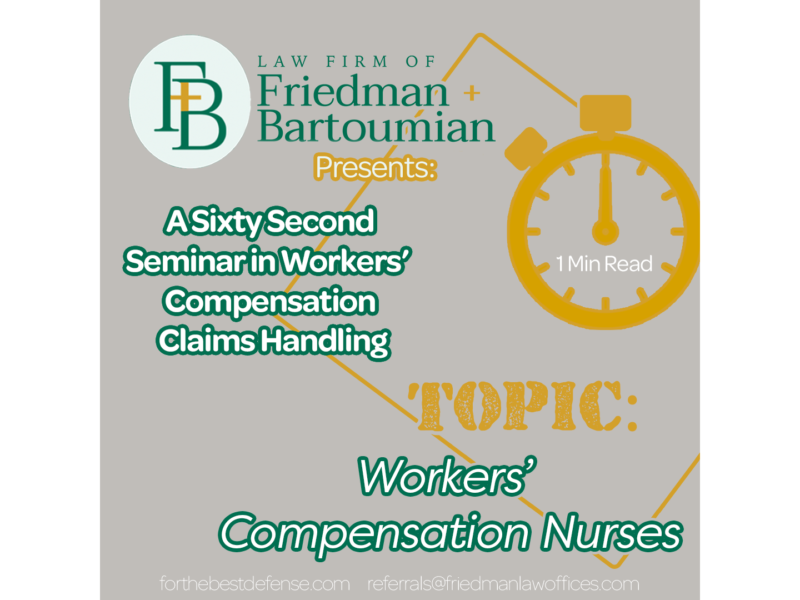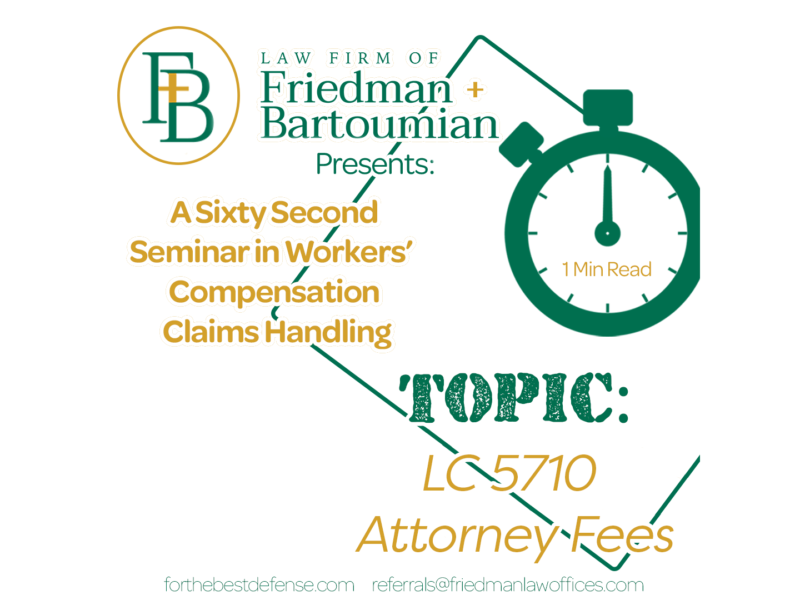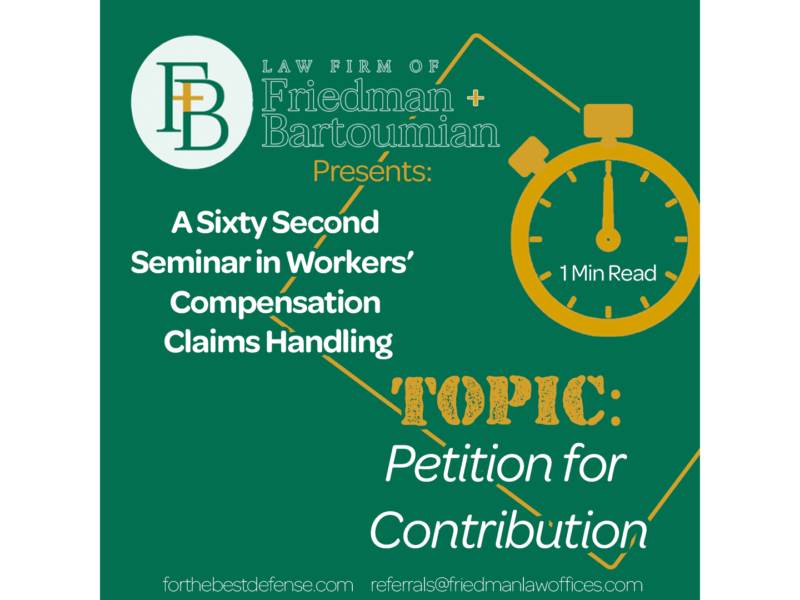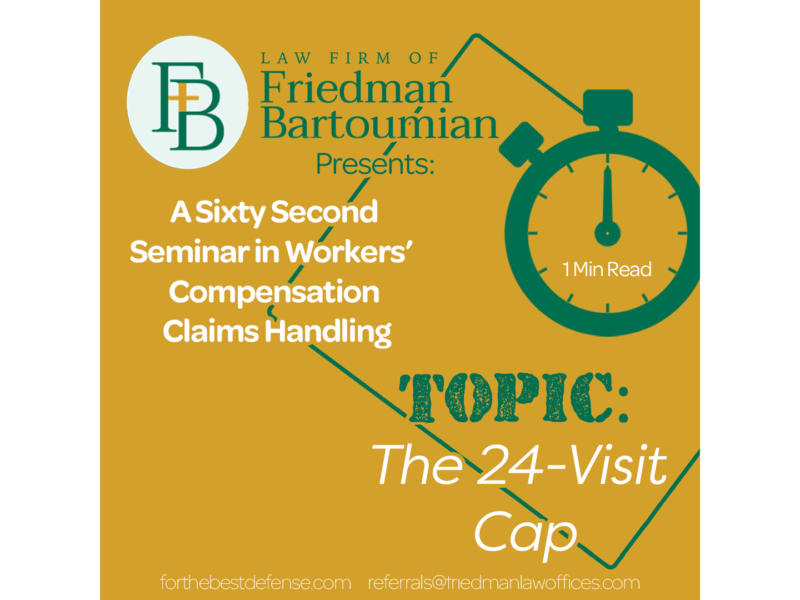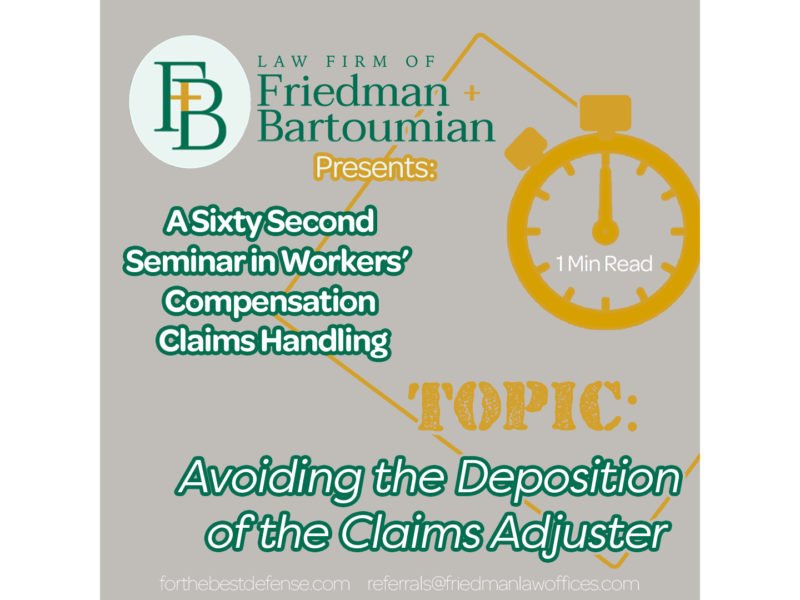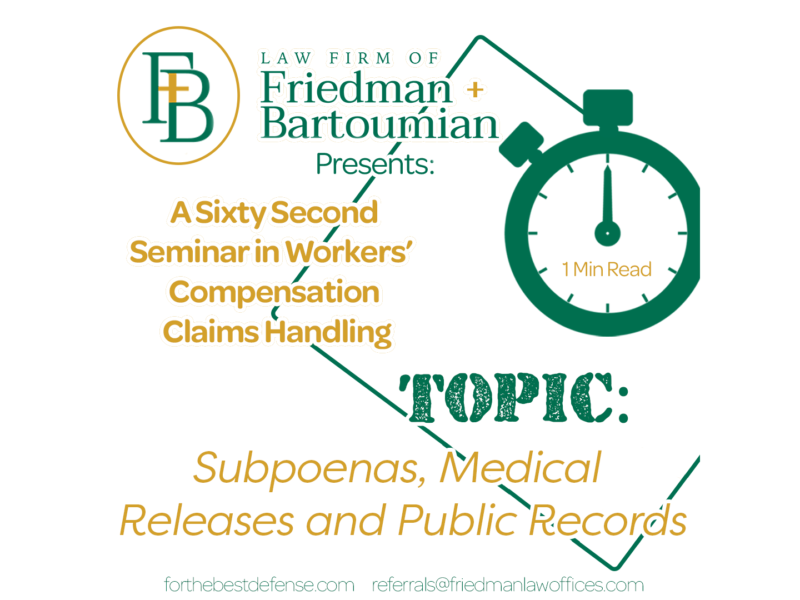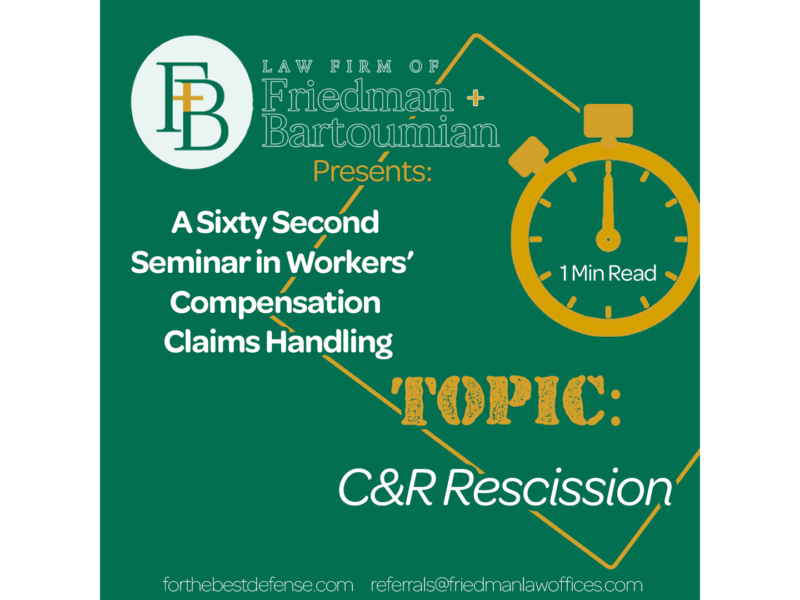California’s workers’ compensation system provides several legal presumptions that greatly impact benefit entitlement; however, notwithstanding that, some claims professionals are uncertain as to what a “presumption” is. A legal presumption is defined by Black’s Law Dictionary as “a legal inference, or assumption that a fact exits. It is based on the known or proven existence …
Legal Presumptions: A Sixty-Second Seminar in Workers’ Compensation Claims HandlingRead More

